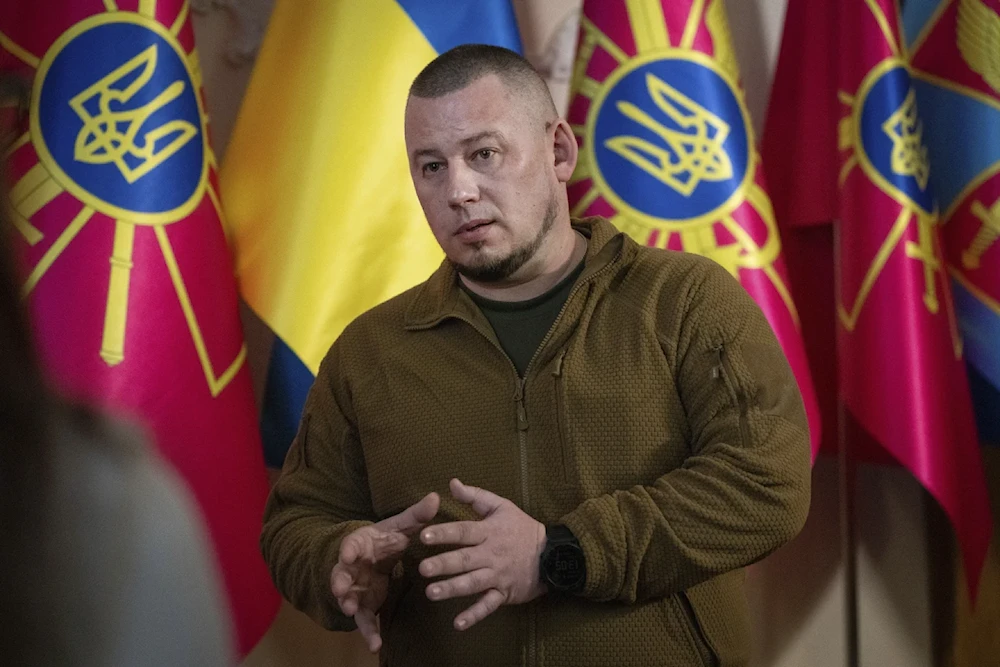Desperate for soldiers, Kiev offers cash incentives to young recruits
Ukraine faces a conscription challenge as it offers financial incentives to young recruits to boost forces, amid ceasefire talks between the US and Russia.
-

Deputy Head of the Ukrainian President's Office, Col. Pavlo Palisa, speaks during an interview with The Associated Press in Kiev, Ukraine, on January 22, 2025. (AP/Efrem Lukatsky)
Ukraine may be facing a conscription challenge as it attempts to attract young recruits by offering a generous salary, a large bonus, and an interest-free home loan. While these financial incentives may seem attractive, whether or not these young recruits are prepared for the realities of war on the frontlines of Europe's deadliest conflict since World War II remains a question, Reuters wrote.
The average age of Ukrainian soldiers on the battlefield is 45, a senior diplomatic source told Reuters.
Pavlo Palisa, a military advisor to Ukrainian President Volodymyr Zelensky, said that fewer than 500 young people have signed contracts, two months after Ukraine launched a national campaign to recruit soldiers for a year. The drive aims to bolster the country’s tired and aging armed forces.
Palisa emphasized that the recruitment initiative is still in its early stages, having started with six brigades before growing to 24.
With Russia's defense forces far outnumbering Ukraine's after three years of war and hundreds of thousands wounded and killed, these current numbers offer little relief.
In January, Zelensky stated that Ukraine had 980,000 people in its armed forces, while Russian President Vladimir Putin had increased Russia's military size by 180,000 to 1.5 million active personnel last year.
The case of a young Ukrainian recruit
Pavlo Broshkov, who is among a few hundred recruits, sees military service as a responsibility and hopes to protect his six-month-old daughter, Polina from his first-hand experiences.
"I don't want my child to even hear the word 'war' in the future," said the 20-year-old interviewed by Reuters who is being sent to fight on the front lines in two months.
"I simply don't want her to know what it means."
As a new father hoping to buy an apartment for his family, Broshkov was drawn to the financial incentives of the recruitment scheme, launched in February to target 18 to 24-year-olds willing to take on combat roles, according to Reuters. The offer includes a mortgage deal, a monthly salary of up to $2,900, well above the national average of $520, along with a 1 million hryvnia ($24,000) cash bonus and a one-year exemption from mobilization after completing a year of service.
While Broshkov’s 18-year-old wife understands the need to defend the country, she can't help but worry about the risks involved.
"Death is chasing my husband now and it can catch up with him at any time," said the young wife, Kristina Broshkova. "Money is a motivation, but dying for money is not really worth it," she said.
Internal criticisms amid ceasefire negotiations
The young recruits are preparing to head to the front at a time when the US administration of President Donald Trump seeks a negotiated ceasefire with Russia. Trump's team is drafting a peace proposal that would recognize Crimea as part of the Russian Federation and freeze the current front lines of the war.
"If he wants Crimea, why didn't they fight for it eleven years ago when it was handed over to Russia without a shot being fired?" Trump said on Tuesday when discussing the negotiations.
A Ukrainian draft has been in place for most adult men after the war commenced in 2022, and Kiev reduced the age of those required by law to join up from 27 to 25 last year in a bid to invigorate their forces.
Serhii Filimonov, commander of the Da Vinci Wolves battalion, said many young recruits had joined before the drive and that money alone wouldn’t motivate someone to fight. "You fight for your friends, family, and future, not for a million hryvnias," he emphasized.
On the other hand, Military instructor Oleksandr Moroz noted that most recruits were attracted by the financial benefits, but called the current numbers "a drop in the ocean" in efforts to lower the average age on the frontlines. "They are still children," he said, as new recruits learned tactical medicine.

 4 Min Read
4 Min Read











